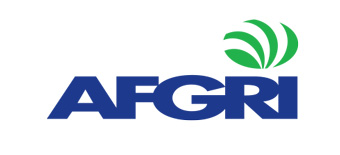Norman Celliers leads AFGRI through an impressive turnaround
Following a tumultuous and challenging period, the AFGRI Group has entered its centennial year restructured, refocused and re-aligned.
AFGRI is one of South Africa’s leading agribusinesses, playing a vital role in enabling food security by supplying a broad range of products and services across the entire agricultural value chain. Over the last 24 months a far-reaching and extensive turnaround programme has been successfully implemented to realign the group around its core focus of partnering meaningfully with those involved in the South African agribusiness industry by delivering tangible value to its clients.
Spearheaded by Norman Celliers, appointed as the Group CEO on 1 March 2021 to assist the shareholders and lenders through a specific mandate of turning the business around, and then leading the group on a sustainable growth path, AFGRI is now beginning to reap the rewards of the intensive restructure. This involved the group having to redefine and refocus on its core business, with a relentless focus – and effort spent – on formulating strategy and organisational re-alignment, including the disposal of non-core assets and restructuring the balance sheet, amongst others.
His unenviable task was to move AFGRI, one of the oldest agribusinesses in sub-Saharan Africa that this year celebrates 100 years of being in business, in a sustainable direction to support the crucially important agribusiness industry. This meant reverting back to the basics that have supported AFGRI for a century – farmers and their farming businesses.
“To say the group has faced tremendous challenges in the past two years, as we navigated through this non-negotiable restructuring in addition to battling those presented by Covid-19, is an understatement, but we are grateful to report that we have made it with the group now well positioned,” says Celliers, who before joining AFGRI was the CEO of the JSE-listed company, Zeder Investments Limited.
As such, he is certainly no stranger to leading or guiding large organisations – at its peak, the Zeder investment portfolio covered an indirect controlling influence over companies representing a combined underlying market capitalisation of more than R40 billion and an indirect underlying employee base of approximately 25,000 people. Having served as the Zeder CEO and chairman or non-executive director of some of South Africa’s leading agri- and food businesses, he is also no stranger to the complexities of the agricultural sector.
“Going back to basics is incredibly important – farming enterprises need to be supported by a multitude of services and products, the scale of which AFGRI has diligently supplied for the past century. This ranges in complexity from grain management and storage facilities, equipment sales and services, retail products, animal feeds and milling, to agricultural financial services and insurance. These core areas of expertise are what we have returned to,” Celliers explains.
This includes, amongst others, being operationally responsible for handling and servicing approximately 5 million tons of the grain value chain in South Africa. AFGRI is also the largest independent John-Deere dealer outside of North America, with operations in Africa and Australia.
The 24-month turnaround project included exiting or selling numerous non-core businesses in South Africa and select African markets. Celliers explains that the proceeds of the sales, restructuring parts of the business, and new strategic lending and banking relationships have assisted in reducing and restructuring debt across the group. “Every part of AFGRI was analysed and assessed in the context of our new strategy and focus. What remains today are operations in South Africa, Australia and select African markets.”
Celliers adds that with the extensive restructuring project now completed, AFGRI is poised to benefit going forward. “Notwithstanding the challenges, the aggressive refocus on the core business has ensured a group turnover that has grown to approximately R20 billion annually with attractive normalised operational profits,” he added.
That is despite its longstanding agri-lending business, UNIGRO, losing the Landbank debtors’ book two years ago as a result of the Landbank taking the book back to manage internally. “We have worked tirelessly to find a solution and are making progress. We are confident that AFGRI will soon be in a position to once again advance credit and reintroduce financial solutions to our core customers.”
Celliers concludes by saying that he is grateful and proud of the commitment shown by the executive team and approximately 5 000 people working at AFGRI. “Today the group is restructured, refocused and realigned not only internally but most importantly externally in respect of our customers, lenders and other stakeholders.
“Significant progress has been made in striving towards being the leading partner to the agricultural value chain, sustainably and sensibly. Our century of experience and agricultural knowledge cannot be underestimated and reverting back to our core focus, without distractions makes for a formidable agricultural support company – we are confident that we are entering the next chapter on a stable footing and are tremendously excited about the prospects that lie ahead.”



